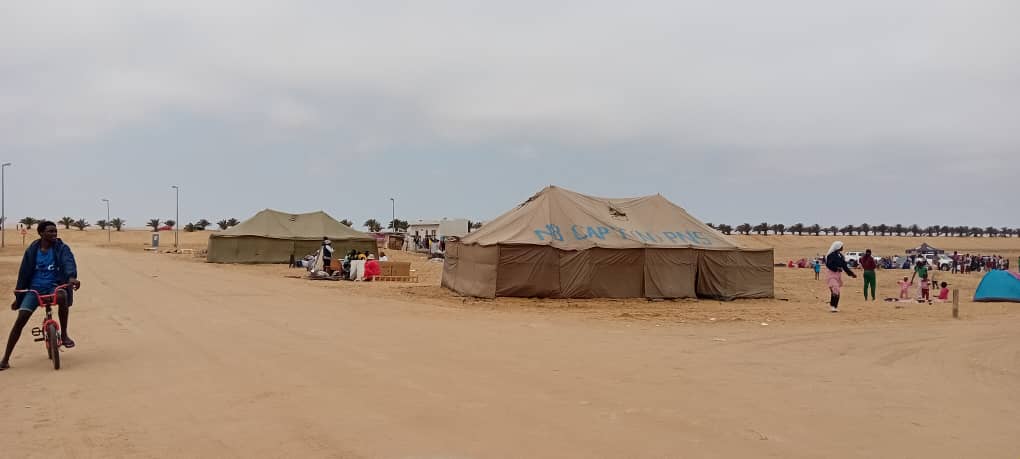Cesaria Evora (70), who started singing as a teenager in the bayside bars of Cape Verde in the 1950s and won a Grammy Award in 2003 after she took her African islands music to stages across the world, died on Saturday at a hospital in Mindelo, on her native island of Sao Vicente in Cape Verde.
Her record label, Lusafrica, released the information without providing further details.A heavy smoker for decades, Evora was diagnosed with heart problems in 2005. She had strokes in 2008 while on a tour in Australia, and in September, when she announced she was retiring.She spoke of her sadness at having to retire, saying: ‘I have no strength, no energy. I want you to say to my fans: forgive me, but now I need to rest.’I infinitely regret having to stop because of illness, I would have wanted to give more pleasure to those who have followed me for so long.’Known as the ‘Barefoot Diva’ because she always performed without shoes, Evora sang the traditional music of Cape Verde, a group of islands off West Africa formerly a Portuguese colony. She mostly sang in the version of Creole spoken there, but even audiences who couldn’t understand the lyrics were moved by her stirring renditions, her unpretentious manner and the music’s infectious beat.Her singing style brought comparisons to American singer Billie Holiday.’She belongs to the aristocracy of bar singers,’ French newspaper Le Monde said in 1991, adding that Evora had ‘a voice to melt the soul’.Evora’s international fame came late in life with her 1988 album ‘La Diva Aux Pieds Nus’ (‘Barefoot Diva’). It was recorded in France, where Evora first found popularity and launched her international career.Her 1995 album ‘Cesaria’ was released in more than a dozen countries and brought her first Grammy nomination, leading to a tour of major concert halls around the world and album sales in the millions.She won a Grammy in the world music category in 2003 for her album ‘Voz D’Amor’.Evora was the best-known performer of ‘morna’, Cape Verde’s national music, which arose from the African and seafaring traditions of the country’s10 volcanic islands.Cesaria Evora was born on August 27 1941, and grew up in Mindelo, a port city of 47 000 with a cosmopolitan air and a fabled nightlife.’Our music is a lot of things,’ Evora told the Associated Press in 2000. ‘Some say it’s like the blues, or jazz. Others says it’s like Brazilian or African music, but no one really knows. Not even the old ones.’She was seven when her father died, and she entered an orphanage three years later.At 16, while working as a seamstress, a friend persuaded her to sing in one of the many sailors’ taverns in her town. As her popularity grew, she was rowed out into the bay to sing on anchored ships.She received no pay – just free drinks. She used to smile when she recalled her fame as a heavy cognac drinker.Evora didn’t think much of her international stardom and she went back to Mindelo whenever she could. She rebuilt her childhood home, turning it into a 10-bedroom house where friends and family often stayed.She had a son and a daughter by different men but never married.- Nampa-AP
Stay informed with The Namibian – your source for credible journalism. Get in-depth reporting and opinions for
only N$85 a month. Invest in journalism, invest in democracy –
Subscribe Now!










